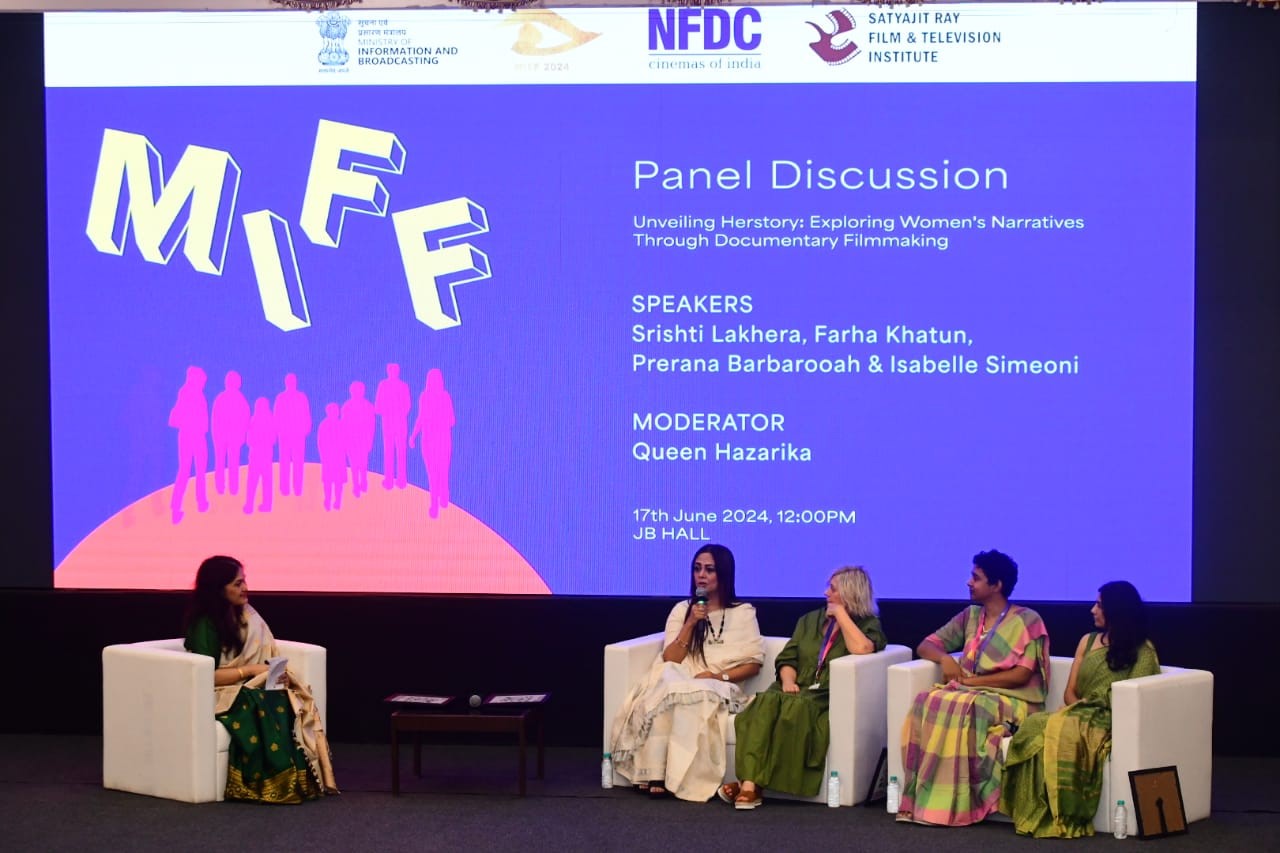The 18th Mumbai International Film Festival (MIFF) brought together four acclaimed women filmmakers for an insightful session titled “Unveiling Her Story: Exploring Women’s Narratives through Documentary Filmmaking.” Moderated by Queen Hazarika, a prominent documentary narrator, the session featured National Film Award winners Srishti Lakhera, Farha Khatun, Prerana Barbarooah, and the accomplished author, producer, and director Isabelle Simeoni. The panelists discussed their craft, social issues, and the challenges and triumphs they have faced in the film industry.
Srishti Lakhera, hailing from Uttarakhand, emphasized that nothing is impossible for women, from breaking stones to writing poetry. Her debut documentary feature, “Ek Tha Gaon,” which won Best Film and Best Audiography at the 69th National Film Awards, captures life in her father’s Himalayan village. With only seven residents when she began filming, the documentary highlights the struggles of an 80-year-old woman and a 19-year-old girl facing the choice between a lonely village life and an alienating city existence. Lakhera pointed out that those left behind in abandoned villages are often women and Dalits, as the privilege to move to the city typically belongs to men. “Women wanted to earn their own money but they don’t have the choice there”, said the film-maker. She noted the increasing dependency on digital platforms in rural areas and mentioned the inspiring emergence of young hip hop artists from humble backgrounds in remote villages who self-learn to write, record, and mix music.
Isabelle Simeoni spoke about the challenges of achieving gender equality and her focus on representing women in her storytelling. She highlighted the difficulties faced by women filmmakers, including the fear of their films not reaching audiences and the financial impacts. Simeoni, as advice to upcoming film-makers added, “Even on the set, you have to make the crew feel confident. We need to be professional and fight for subjects which we want to see on the screen”.

Prerana Barbarooah, an accomplished Director, Writer, Actor, and Model from the North-East, has created over 50 documentaries. Her first film, inspired by the matrilineal society of Meghalaya, contrasts with her patriarchal upbringing. In her documentary, she explored the unique societal roles within matrilineal tribes, capturing 36 hours of footage condensed into a 36-minute film. Barbarooah expressed her fascination with men living in their wives’ houses, a norm in Meghalaya’s tribal society.
Farha Khatun, a filmmaker and editor, delves into themes of gender, patriarchy, and religious chauvinism in her documentaries. She highlighted the significant presence of women documentary filmmakers in India and praised the support provided by the erstwhile Films Division and the current NFDC. This governmental support, she noted, offers a vital push and confidence to documentary filmmakers, aiding them in starting and sustaining their careers.
 Matribhumi Samachar English
Matribhumi Samachar English



